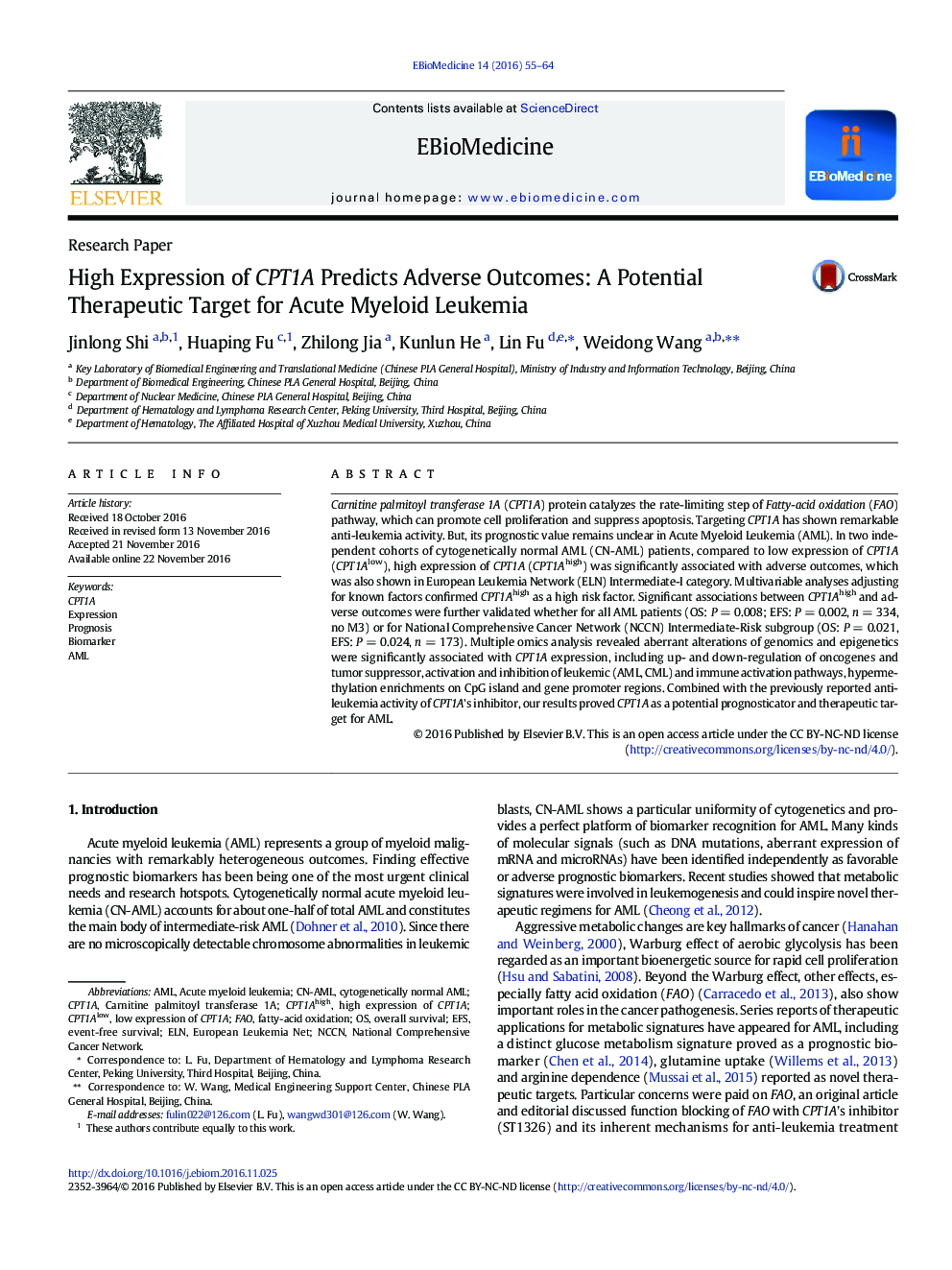| Article ID | Journal | Published Year | Pages | File Type |
|---|---|---|---|---|
| 8438837 | EBioMedicine | 2016 | 10 Pages |
Abstract
Carnitine palmitoyl transferase 1A (CPT1A) protein catalyzes the rate-limiting step of Fatty-acid oxidation (FAO) pathway, which can promote cell proliferation and suppress apoptosis. Targeting CPT1A has shown remarkable anti-leukemia activity. But, its prognostic value remains unclear in Acute Myeloid Leukemia (AML). In two independent cohorts of cytogenetically normal AML (CN-AML) patients, compared to low expression of CPT1A (CPT1Alow), high expression of CPT1A (CPT1Ahigh) was significantly associated with adverse outcomes, which was also shown in European Leukemia Network (ELN) Intermediate-I category. Multivariable analyses adjusting for known factors confirmed CPT1Ahigh as a high risk factor. Significant associations between CPT1Ahigh and adverse outcomes were further validated whether for all AML patients (OS: P = 0.008; EFS: P = 0.002, n = 334, no M3) or for National Comprehensive Cancer Network (NCCN) Intermediate-Risk subgroup (OS: P = 0.021, EFS: P = 0.024, n = 173). Multiple omics analysis revealed aberrant alterations of genomics and epigenetics were significantly associated with CPT1A expression, including up- and down-regulation of oncogenes and tumor suppressor, activation and inhibition of leukemic (AML, CML) and immune activation pathways, hypermethylation enrichments on CpG island and gene promoter regions. Combined with the previously reported anti-leukemia activity of CPT1A's inhibitor, our results proved CPT1A as a potential prognosticator and therapeutic target for AML.
Keywords
Related Topics
Life Sciences
Biochemistry, Genetics and Molecular Biology
Cancer Research
Authors
Jinlong Shi, Huaping Fu, Zhilong Jia, Kunlun He, Lin Fu, Weidong Wang,
